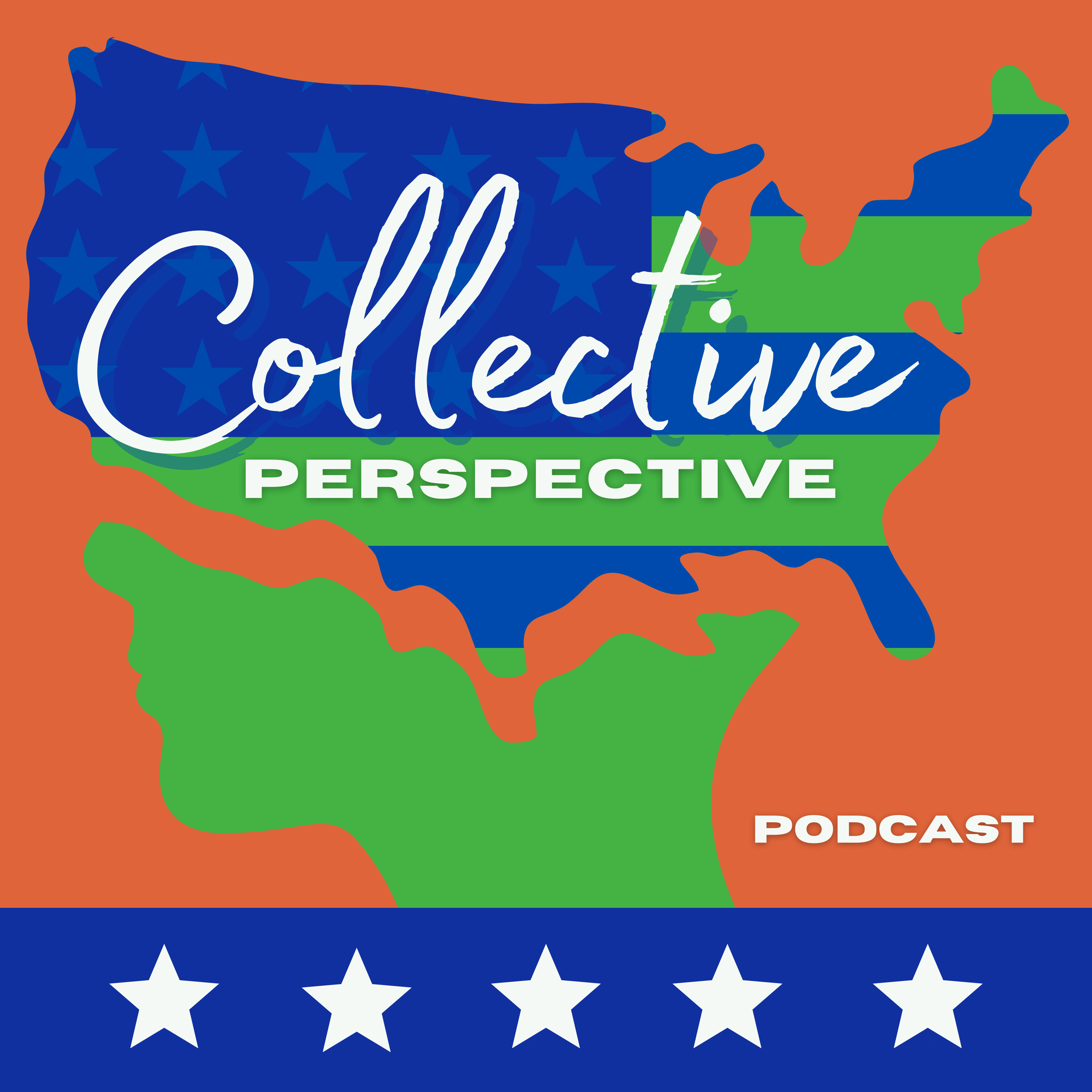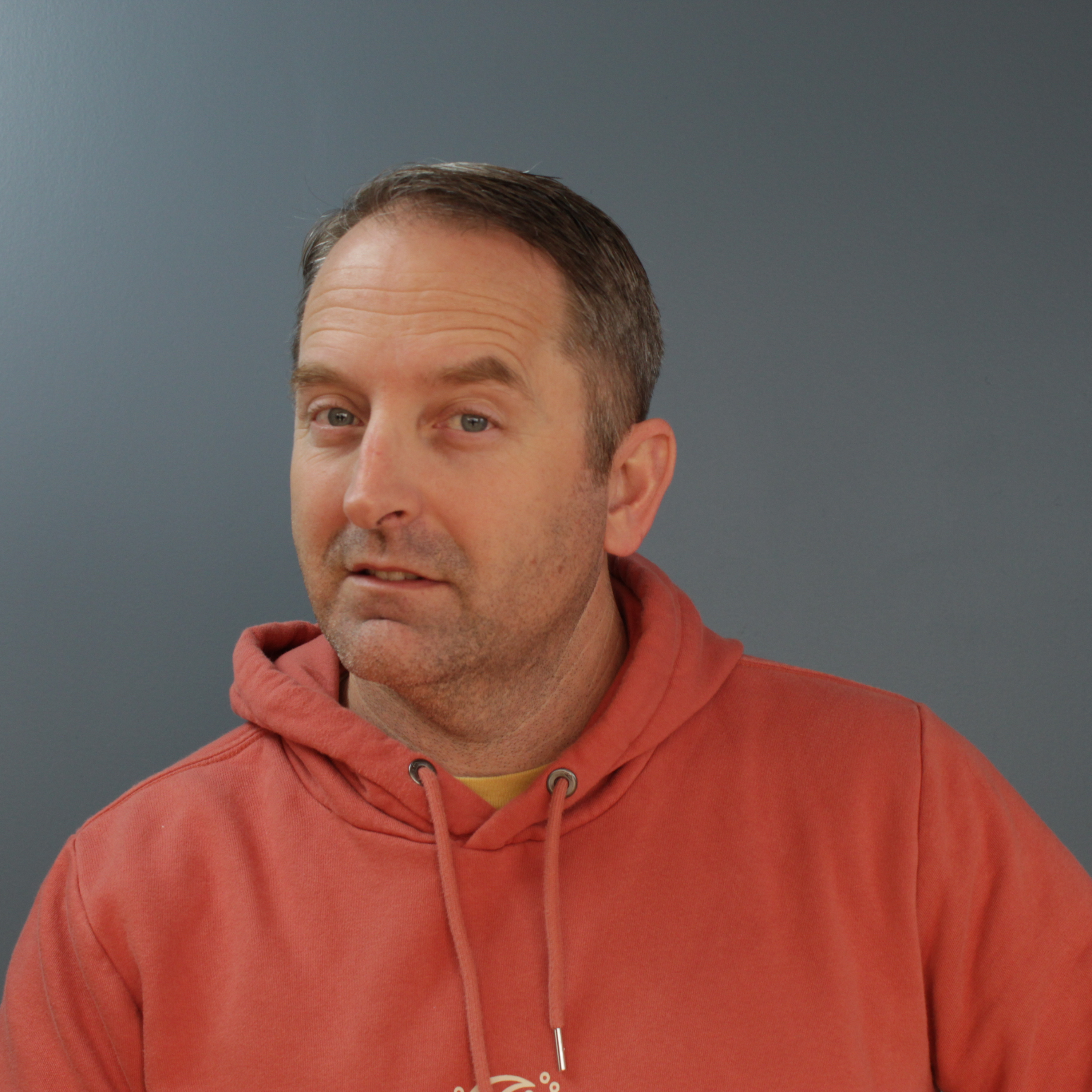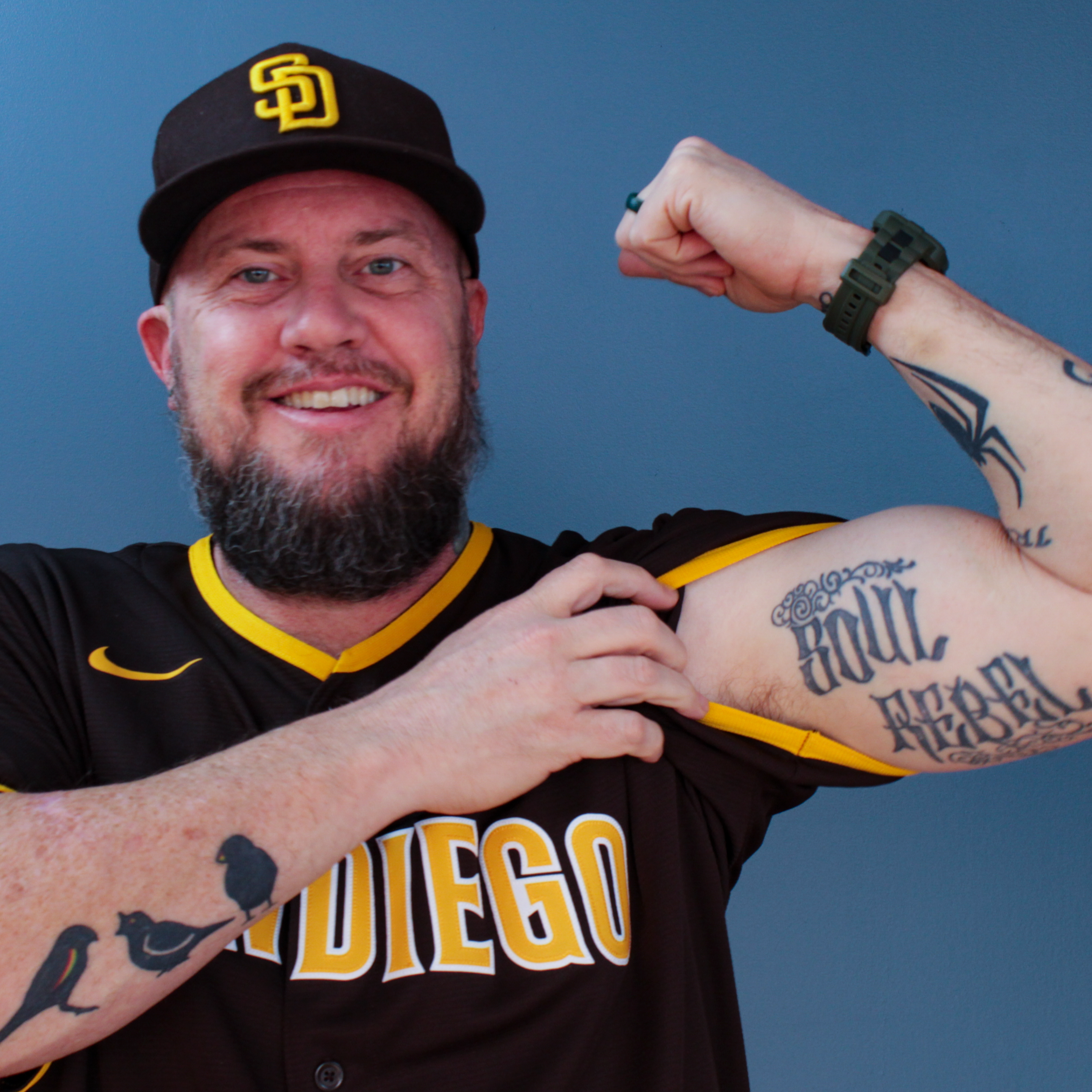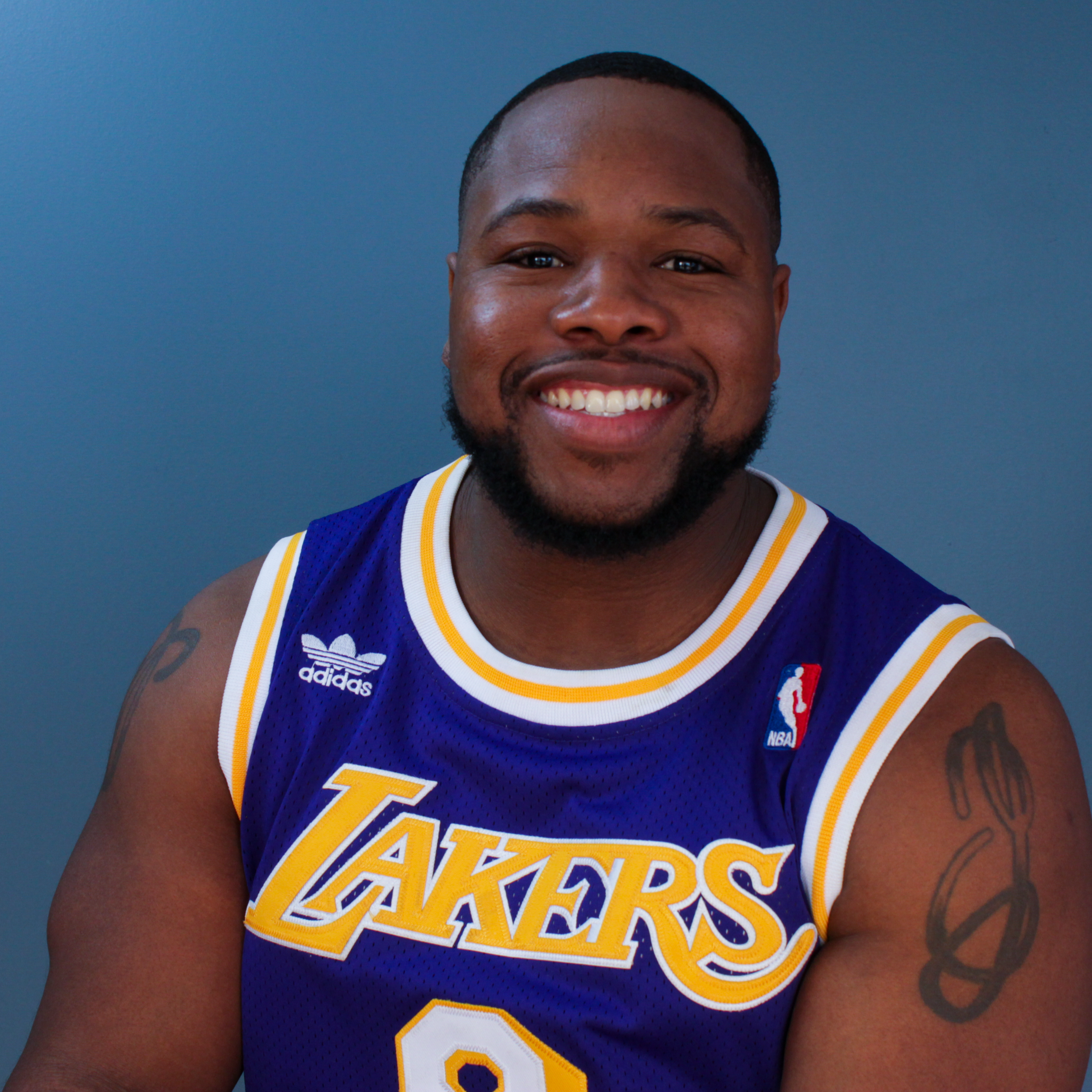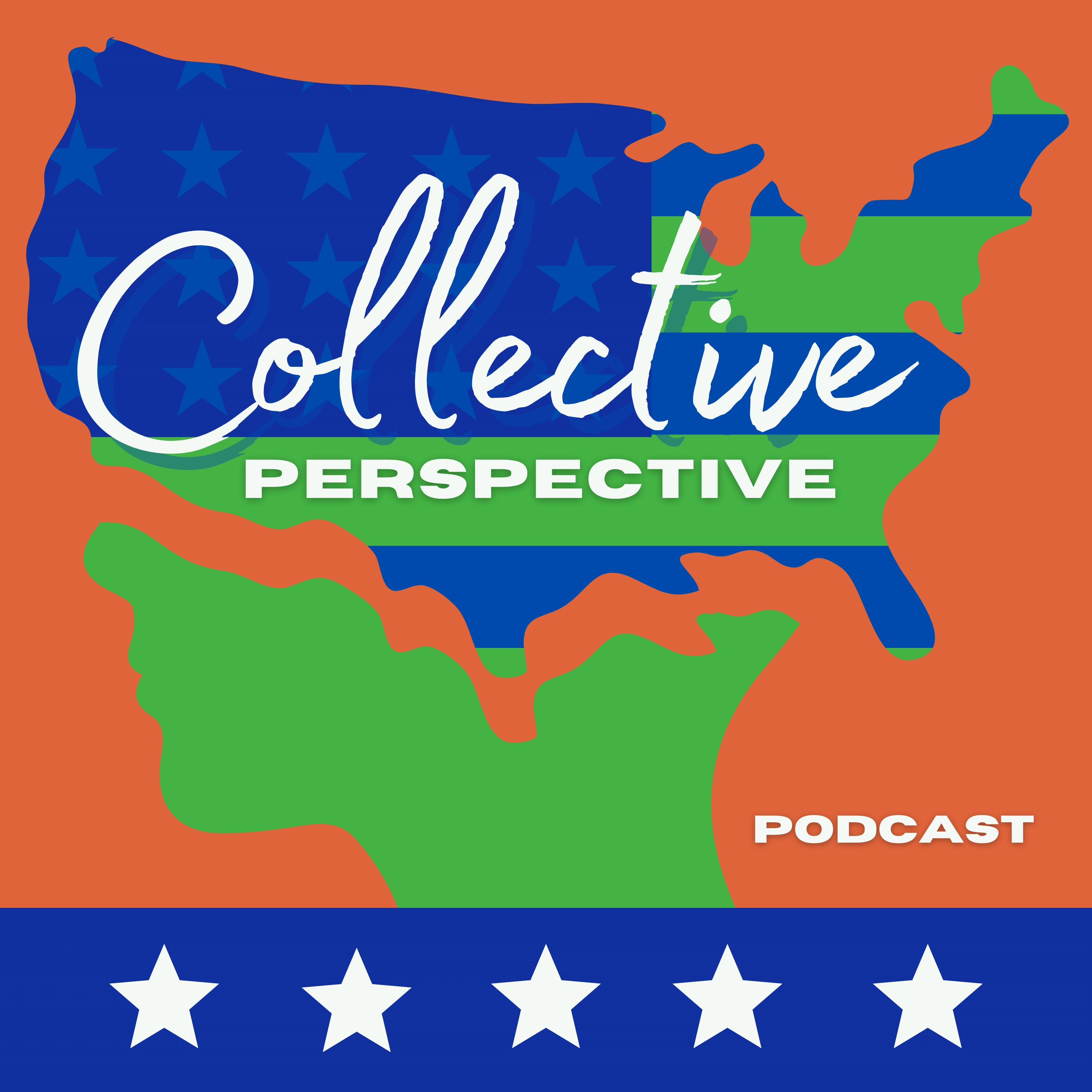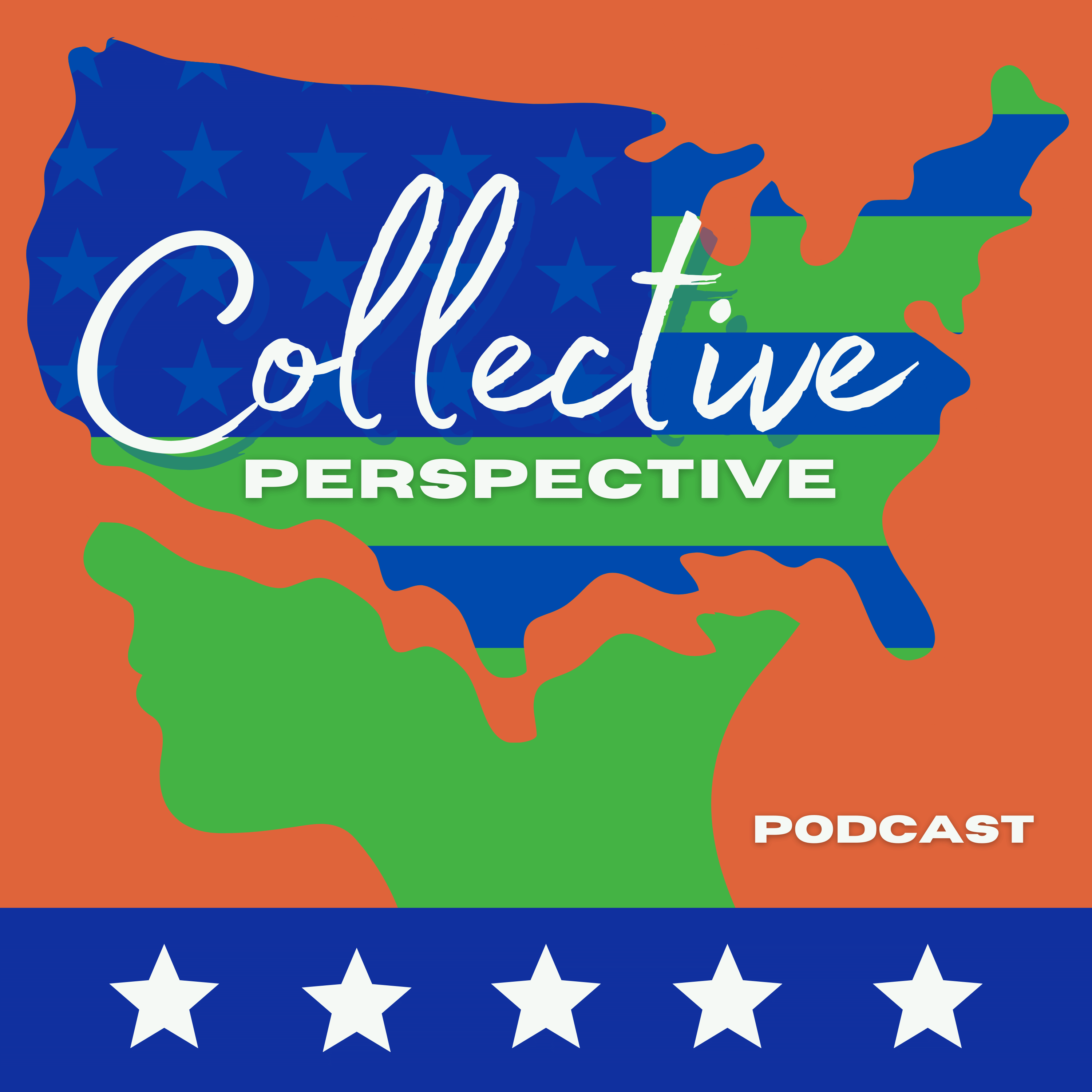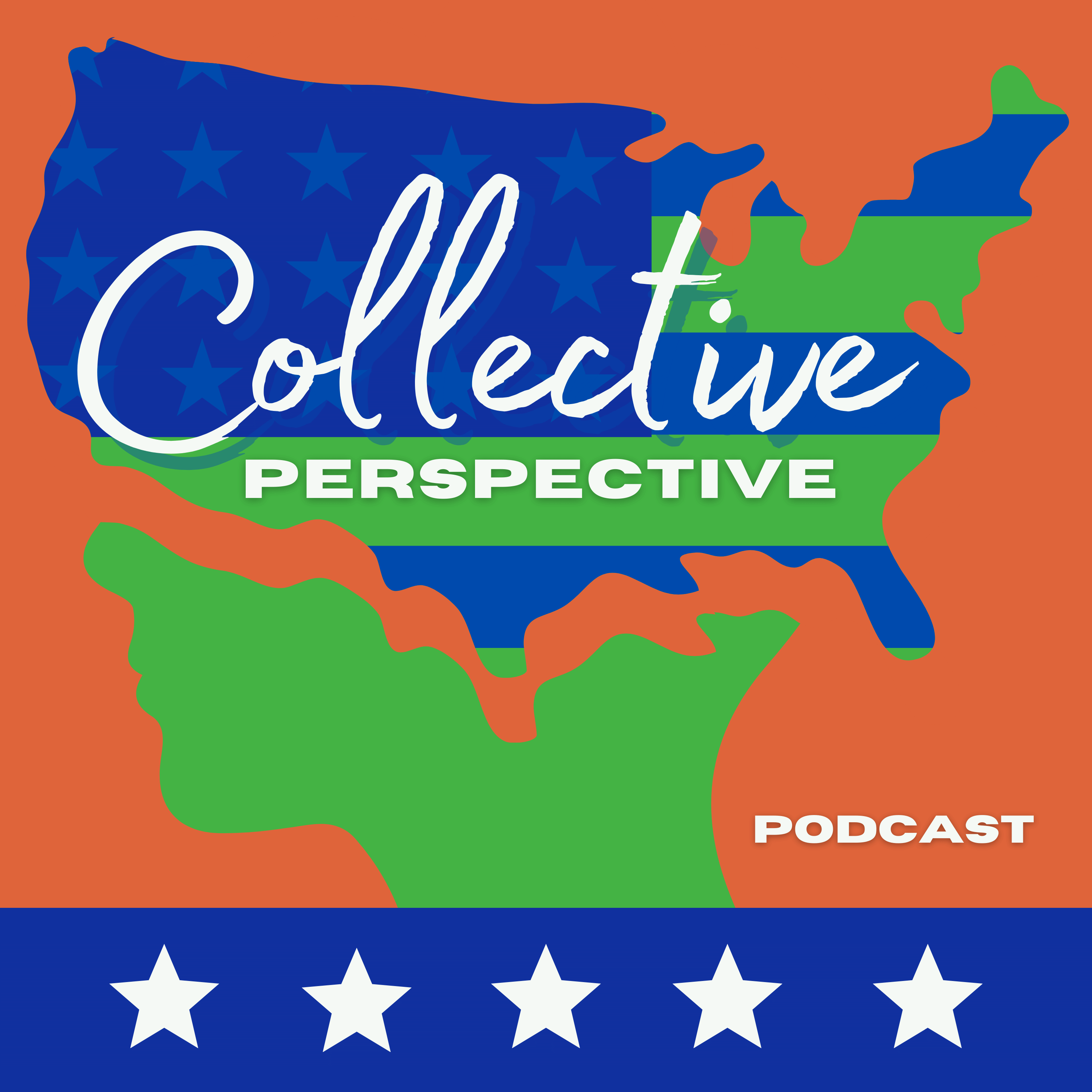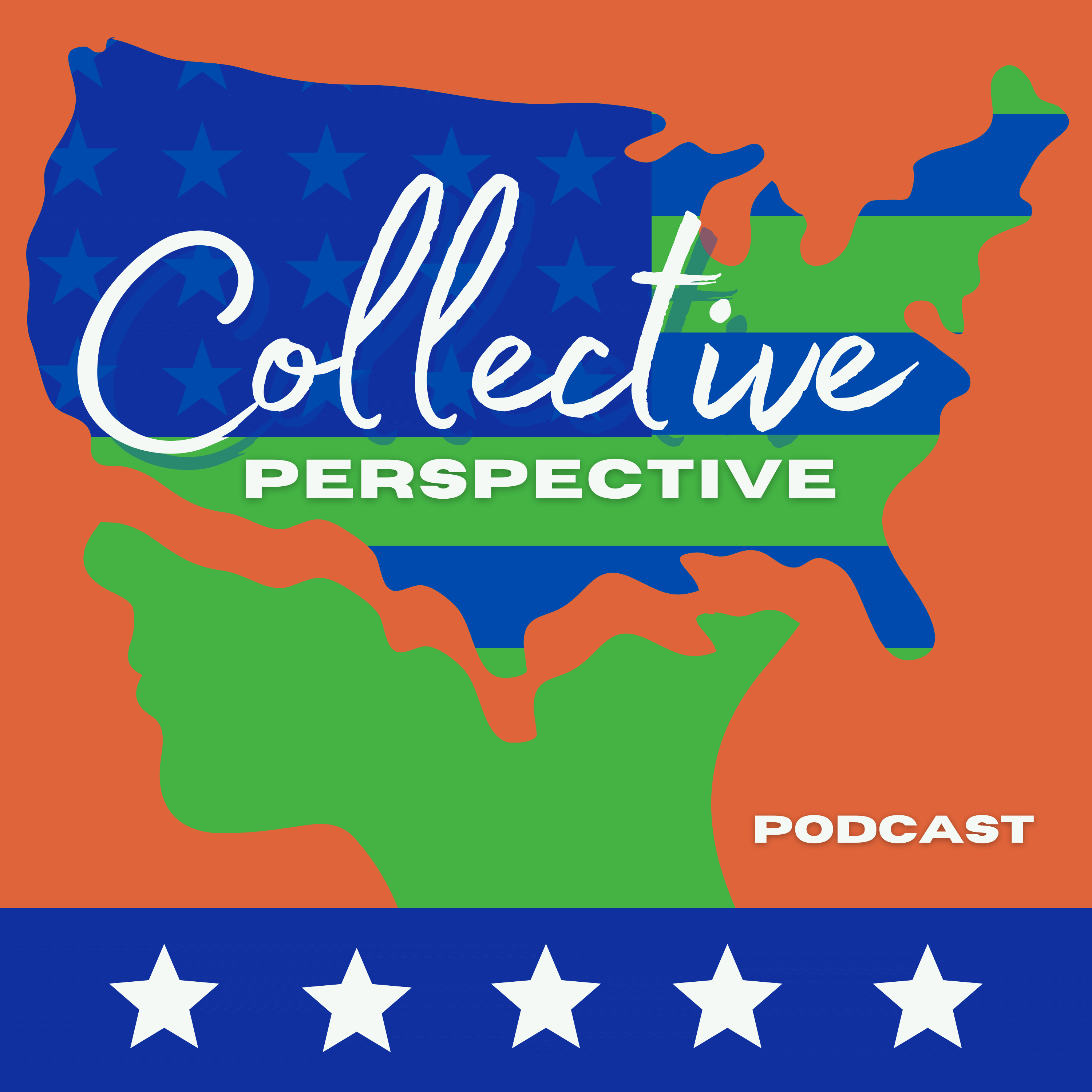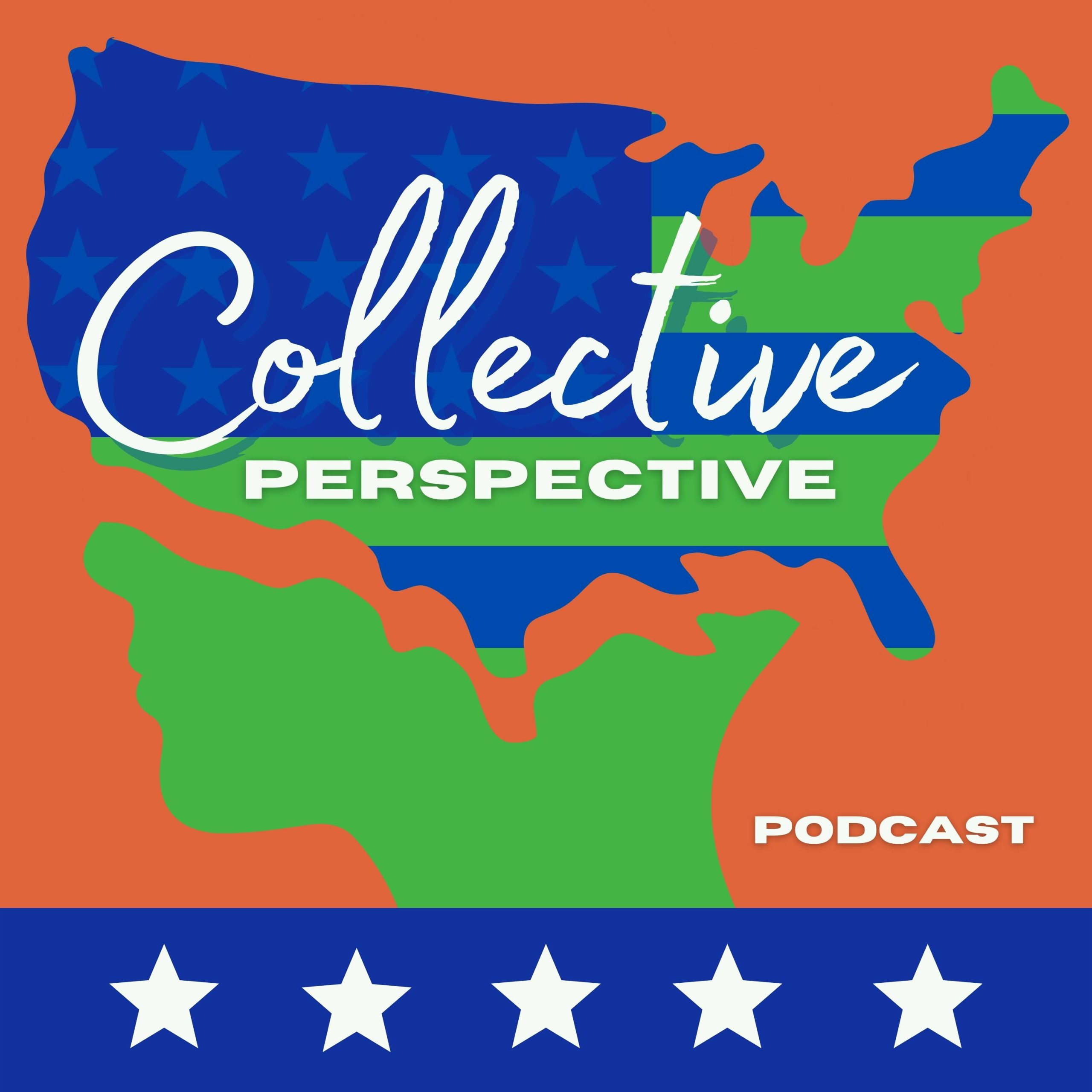Episode Transcript
This isn't just a podcast, it's a reminder. A reminder of what makes America Stronger isn't the headline or a hashtag. It's people from the ones building our homes to the ones rebuilding their lives, veterans, tradesmen, neighbors and volunteers, real people doing real things. Here we find common ground first, and then we work on our differences.
This is the collective perspective podcast where purpose, people, and progress mean. Hey everybody. Welcome back to the Collective Perspective podcast. I'm here with again with my buddy Travis. What's up, Trav? What's up everybody? Glad to be back. It's always fun to be here. Today we're talking about hideous is the eye of the beholder.
It's a little different than beauty is in the eye of the beholder. How did you come up with that? Well, we, we explore how reality is per is perception and. Uh, let's face it, who is the one that puts labels on everybody that says something's ugly? Um, I think it's all up to, actually, the term is I, beauty is in the eye of the beholder, but also to determine whether something's beautiful or not.
Hideous also has to be, you have to know what's not beautiful and hideous would be the complete opposite of beauty. Is that, uh, kind of the, the going premise here? Yeah. Uh, ugly. It's all ugly is, uh, they're, both of 'em are, are not great terms, but it is a different perspective on it. Well, this episode started because a good friend of mine from back.
In Spain when Travis and I were roaming Europe, conquering Europe, uh, Eric, he, uh, I posted something on Facebook about how it only took $30 for my car. It's a Hyundai Hyundai Hyundai, Hyundai Kona, and it's, uh, neonic yellow. And he goes, yeah, but then you have to drive around in that hideous thing. And my response was Hideous is the eye of the beholder.
And I think it works. It works. Um, because I mean, let's, let's break it down. What are the things in life we find beautiful or ugly? Usually people, um, sometimes someone's not that attractive looking, but the beauty inside them comes out in their personality or someone. It is beautiful and they are sour is, uh, the worst grape you ever had in your life, and you want nothing to do with them, but they're beautiful.
Um, does that make 'em beautiful? Uh, you know, I, I think it's a, it's a complete package. Uh, external looks is a, is a gateway. Um, but it's not the complete package. Something can, at first glance. Look to be beautiful. I mean, even some of the most beautiful flowers in the world, they look great, but they'll kill you.
Have you ever heard of the term Wabi-Sabi? No. But the way you just said it reminded me of, uh, what, which one was it? Fast and Furious. Tokyo Drift. W uh, w Waba Waba. No. Waba is a flip flop. My wife alluded me to this tonight when we were talking about sandal, what I was talk, what we're talking about tonight, and it's a Japanese concept that finds beauty and imperfection in appearance and the natural cycle of growth and decay.
So, what is it? What is that word again? Wabi-Sabi. Now I, now that you mention, uh, WABI. SABI, now that you mention that, it also, it reminded me of, um, Japanese. Pottery or China, if you will, or fine dishes. Uh, if one breaks, they use 24 karat gold to use, uh, to um, mend it back together to, uh, highlight the beauty in the fracture, the beauty and the breakage of it.
It changes the appearance of everything. It can't be whole again, but it can also still be mended and functional. And while wasabi even embraces human life, you know, uh, we we're obviously born, we live through life. We contract all these diseases and decay and sickness and illness and all these things happen to our bodies.
And our bodies slowly decays as we get older and we blew, we lose bone density. Some people lose their mind. Um. Yeah, but there's a beauty in that life itself, the the process. Because over that time when things get broken, they do get mended, they do get fixed, things do come back, and they can be better than before.
It won't be the same as before, but they can have a better understanding or be. Uh, stronger for the reinforcement, for the, the, the mending of that fracture of that break or whatever had happened to them, that sickness, that ailment. So how does culture set beauty? I know, uh, I don't know if they're that popular anymore, but I don't know if anybody buying swimsuit, sports illustrated swimsuit editions anymore, does that even exist?
A lot of print stuff, probably, I'm sure it exists, but we don't see it as much because everybody's connected digitally. So where, where does the, where does the culture or what, I'm sorry. Please ask, say the question again. How does culture set standards, um, who's the one that says that something's beautiful in culture?
Um, that's a very good question. Who does say it? I think that a lot of that comes from these days. You, you mentioned Sports Illustrated, I think that Yes. The, they highlighted beautiful women and bathing suits, uh, and, and exotic locales, which really I think set the tone for women's, uh. What this is, this is probably not gonna come off very well, but physique to have a, to have a good physique, um, they, sports Illustrated was a, a leader in putting out, um, very physically fit people.
Scantily clad, basically, uh, you know, in, in bathing suits and whatnot. Uh, but that, that also plays into what culture or how, how our cultures have evolved. That was a form of media, was print media. Now it's a lot of social media, online media. Uh, the where, where our cultural. Likes and dislikes are, are displayed more readily.
I think. I mean, if you think about Andy Warhol, uh, his pictures were very abstract. His paintings were very abstract, and people say that they're beautiful. I don't know enough about judging art to say that that's beautiful, but I can tell you, I can look at, uh, um, which one is it? Like a, a Monet with the, uh, sunflowers?
I think it's Monet. I don't, I, I don't know art that well, but when I look at a painting done, uh, from one of the classic artists, that gives me a sense of beauty and how they did it and what they used and stuff. But I don't know. How you could take something like that and then an Andy Warhol or a paint splatter type of, uh, art and say, oh, that's beautiful.
Uh, it looks kind, it looks pretty cool. I wouldn't call it beautiful. To me, that's, that's my perception of it though. So then there's the different classification of, uh, this topic and that is calling people ugly. Morally or culturally feeds, uh, division. Lemme say that again. What's that? This is the Monet sunflowers.
So the other spin of that is like cow calling. Uh, how so? The other side of that is calling people ugly and, uh. How that culturally divides us. Um, maybe not just, uh, ugly by appearance, but your idea is ugly. Um, it, it creates division instead of trying to see the beauty in something or see the positivity in something.
If we were just to change the word from pretty to positive or negative or ugly, uh, ugly has that connotation of being negative. Being the outsider, being something that somebody doesn't want. But then, you know, it just goes back to the saying eyes and the, the beauties in the eye of the beholder. Uh, it really does.
It's all about, it's all a matter of perception and, uh, I think people, uh, how it creates division is people use ugly as, uh, a weapon. Uh, they weaponize the word. So you don't believe in what I am, what I say, uh, you're ugly. Uh, well, they say other things, but that's basically what they're saying is, I don't agree with you.
Your opinion is not favorable. It's not. Beautiful. I, I, that's how they would weaponize the word. Uh, no. I, I, I see. I can, I, I see where you're, I think I see where you're going with that. Um, yeah. Ugly, ugly can be, ideas can be ugly. Um, anything can be ugly. And, and my thinking of is if something's ugly, it it, it does harm Something ugly, does harm to something.
Or someone or someplace. It doesn't, it doesn't matter. It's just a, a bad thought, a bad exercise, a bad intention. That's an ugly thing. Uh, and, and to be. Beautiful. You know, you know. Oh, that's a great idea. That's a beautiful idea. I've heard, you know, people say that all the time. Uh, not to me, but to, to, to other people or All your ideas were ugly?
No. Okay. They're only mediocre. Your wife never said that was a beautiful idea, Travis. Um, only when we booked our hotels overseas. That's a long time. It was a couple weeks ago. No, I mean, that's a long time only getting that. Oh, no.
Uh, no. But, um, so to me that's, that's, that's what, um, uh, at least some ugly things could be or how, how things could be ugly is just being detrimental. I think it goes down to the basis of an argument, right? So the basis of an argument, what I'm ref what I'm referring to is before you can decide something is truly ugly, can you try to identify three positive things about it?
Can you, uh, can you try to find out, because obviously if I think it's beautiful and you think it's ugly. Then my perspective's a little bit different than yours, and it's just a matter of perception. But what are the three things that I like about it the most? Can you, if you don't, or at least can open your mind into thinking that, Hey, what are some possibilities like, um, well, maybe they like the color or maybe they like the way that person makes them feel.
Maybe they like the gas mileage, maybe they like the gas mileage, Eric, and maybe, uh, I don't like not being able to find my car in parking lots, which I don't have a problem except when some other big truck or something parks in front of me that is blocked when I don't see it. I look for those. So, um, nonetheless.
I like that word nonetheless, regardless. You know why I like it? Because it's multiple words put together nonetheless. So they made more to mean less, they made more of it anyway. So thoughts can be ugly too. Um, I think, and that's kind of going back to just the mentality of things and uh, you can have a pretty ugly thought.
And it could be pretty substantial. Um, but do you exercise that ugly thought or do you have self-control and see how I'm going back? Yeah, we just talked about that, didn't we? Yeah, last week. That's right. And so there can be a lot of beauty in that. I don't know, I was rambling on now, I think. No, um, no. The, the, so what would, what could be some examples of, of beauty or, you know, hideousness or ugliness say in, in music?
I, I think if, uh, music, I. Something ugly in music. It might be like a lyrical thing. Or let's face it, the cowbell only works for one song. What song might that be? And then this kind of,
um, I've only heard it really good in one song, and then even when you notice it's there, it's just like, ah, this is hideous. Um, and there again, it's in the eye of the beholder, right? Yeah, because music, well, I, I get, I'm not gonna like every style of music and some of it, you're right. I think a lot of times it's more the lyrics, uh, because if I don't understand it, or if it's a dark, if it takes you to a dark place.
I don't wanna be in a dark place singing a song and like, oh, I like this song. No. That's, to me, music is a, is a release. It should make me feel good, feel happy, or express my current mood, um, so that I can get it out in the public, get it out there, get it out of me so I can feel better. Uh, so for, for music, kinda like a fart, uh, kind of like a fart.
Yeah. Um, so for me, music, yeah. To me there can be ugly music because I'm not a, I'm not a huge fan of all types of country. I'm not a huge fan of all types of rap. Do I like it? Yeah, I like both. Uh, but that the, that's not my go-to music. I mean, I've. More times than not, I'm listening to two things now. It's considered classic rock or techno.
Those are the two types of What is your, what is your version of tech? Uh, classic rock. Well, I say now's version of classic rock would be our, our grunge now is in the, uh, publication now. No, as in, not, not no current. I know, I know the As in current currently. Um, our, the music we listened to growing up is now considered classic.
There used to be a compilation called now, and it was all year electronic music. It would be, no, it would, it would have summer hits, techno hits, it would have your club hits, it would have all these, all these different stuff. I think they have all genres now. Hear this, or now music or something like that.
Uh, but, um, let's stop talking about it now. Exactly. Uh, but yeah, you know, that's, that's my take on good versus bad anyway. Well, there's also self-reflection. So another good topic we had, I see myself as overweight somebody else, but like, no man, you look great. I'm like, nah man, I need to lose some weight.
Yeah. I've, I, I feel the same way about you. Thanks. That was a very ugly side of you. Well, we gotta get these examples in somehow, right? You know what my favorite was? The dad? The dad voice that had me crack it up. You could be ugly. You can show your ugly face. All right, show me your war face. You know, a lot of times it's not really, this is your beautiful side and you show your ass that's, that's the ugly side of you.
Um. You know, that's, that's another thing too is like your, the ugly side of your personality. Do you, yeah. I think we both all have that. How much of an ugly side of the personality you have, I guess this is kind of like your quirks, uh, what gets your juices flowing, but I can tell you that even, uh, exercise and gentleness, um, which is a previous episode, it, it taught me, uh, self-control.
Um. To, to notice that, hey, this is a trivial thing to talk to, argue about. And um, this could turn really ugly. Uh, or I can keep it, um, beautiful and simple and just not a factor in my life, you know? Do you like how I spun that all around? It was like a washing machine of, I'm a little dizzy after that. Last topics.
But it all, all of this is what we're talking and ties together. I feel, um, it does, even, even interviewing Edwin a couple, couple weeks ago, um, he's a prime example of a contributor to society and contributing to the future of many youngsters, uh, people doing what we're doing here and beyond. So, um. Your body's image is also, like I was saying, we need to lose some weight.
I'm working on it. And you know that right there again, we can, um, but to me it's, oh man, it's ugly. We, we have to, we have to exercise a little bit more self-control though. I. Right. We're just a big washing machine of topics here. And have you actually really ever seen, you know, we've only seen reflections and videos and images of ourself we've never seen ourself live.
It's true. Um, that's kind of hard to do it well. Or wait, we can see each other live. That's still a, a picture though. It's a, it's, it's an image. I can see my hand. Yeah, but you can't see your face. I can see my nose, I can see I, I can see my loops.
Um, but yeah, a body image. Absolutely. I, I, I've, I feel bad about my bo you know, that's something that I, I obsess over because at one point I was running half marathons, marathons. I did a half Ironman, and now it hurts to walk around the block. You know, my heels, I've got, you know, it's, it is just, um, you know, reflecting on myself.
How can I make myself better? How can I view, spin that to be positive, to make it, uh, more beautiful again and get back into those things? I think, uh, some. Some of our previous topic, uh, self-control will help me get back there, could help, you know, um, to get back to that beautiful place, that beautiful mindset of being where I want to be.
It's funny you say that. Uh, there was a friend of mine on YouTube, or I'm sorry, on Facebook, and he just had a very ugly perceptional life. Like, I'm just waiting for the rapture. I'm like, wow. Um. Have you thought about just, I told him, Hey man, do you want to go hiking with me? Because I can guarantee you if they change the lens of how you see the world, your world will change.
And so that might just be not going on Facebook for a week. You know, we talked about that. Uh, that's, that's what's called burnout. Um, and. What I wanted to do about hiking was to take 'em away from all digital concepts, like, okay, taking a picture and that stuff like that, that's, that's something different.
But what I'm talking about is take you away from technology to where you could go back to a time, and some of these people watching this show don't know what it's like to be in complete isolation, and that beauty comes from within. And it's how you see yourself and how you carry yourself that makes everything else around you.
Beautiful. And I, to your point on that, I, I think that's a great idea. We have been so plugged in most of our lives that we've forgotten what. Beauty is to us. We, we are fed beauty on, on little four inch, six inch screens or our big 85 inch mega TV that we have. When you unplug and get away from that. You kind of reflect and like, wow, I'm missing out on a lot of stuff.
The TV does this or my, the little gadget in the palm of my hand does no justice to this. It gives me a new perspective. Maybe I can look at things in a different light and judge what's beautiful for myself differently than what's being shoved down my throat based on, you know, an algorithm. And this gentleman seemed like, well, is this, the world is trash?
Like I don't. If this world is ugly, well, if you were to take the world out of it and just isolate yourself in nature, you would see that no, it's actually not ugly. It's beautiful and it's humans that add negativity and, uh, don't have self-control that make it ugly. So on that, we'd like to have you, like, share a comment down below.
Uh, let us know your thoughts on what you find. Yeah. Uh, give us some ideas. Sorry, I didn't mean to cut you off. Uh, let us. Know what you find ugly or beautiful or hideous, uh, as the name of the episode implies, and by all means, um, be nice to someone. Be beautiful to them. Don't be ugly. With that note, we peace out.
